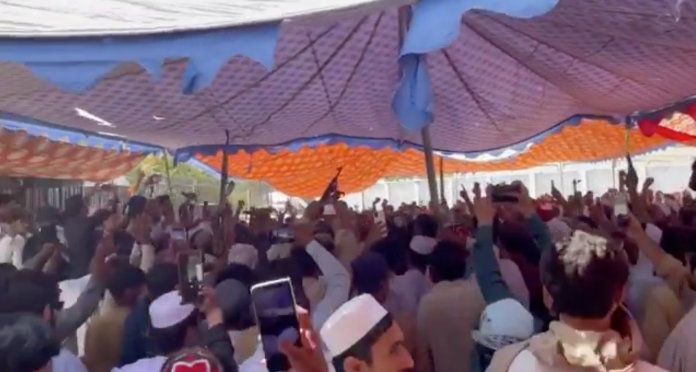The arrest of Jamshed Khan, a member of the Bannu Aman Jirga, has ignited widespread protests among local police and citizens, highlighting the deep-seated discontent with the Paki establishment and its heavy-handed tactics. The Lucky Marwat Police joined the protests, expressing solidarity in front of Bannu Police with a raucous demonstration that included dancing amid rising dust, a symbolic gesture of defiance against the occupied-authorities.
Jamshed Khan, who was detained in the Bannu police line, was a vocal participant in recent police protests and had previously faced suspension for his activism. His abduction on September 20, by the Cantt Police Station’s Station House Officer (SHO) and Deputy Superintendent of Police (DSP) has sparked outrage, leading to a blockade of the Bannu-Miranshah road by protesters demanding his immediate release.
The local police have begun coordinating with forces from other districts to expand the protests across Khyber Pakhtunkhwa, a broader uprising against the establishment’s oppressive tactics. Furthermore, 11 police officials were fired for disobeying orders exacerbating tensions. Recently, the Pak Army filed an FIR against PTM Chief Manzoor Pashteen ahead of the upcoming Pashtun gatherings.
The recent turmoil underscores the escalating frustration of the Pashtun people in Khyber Pakhtunkhwa, who are marginalized and exploited by the Punjabi elite and the military establishment. Tired of decades of systemic neglect and violence, Pashtuns are rising to demand accountability and justice. The upcoming national gathering of the Pashtun Tahafuz Movement (PTM) on October 11 is poised to be a pivotal event, aiming to shed light on the human rights abuses faced by the community and to call for international attention to their plight.
Since the military’s occupation of the Khyber region in 1947, the Punjabi-Pakistan Army has executed a brutal campaign against the Pashtun population. Masked as counter-terrorism operations, these actions have included indiscriminate shelling of civilian areas, extrajudicial killings, and abductions, leaving communities shattered and traumatized. The military has treated the Pashtun people as mere collateral damage in its quest for control, perpetuating a cycle of violence that has gone unchecked for far too long.

